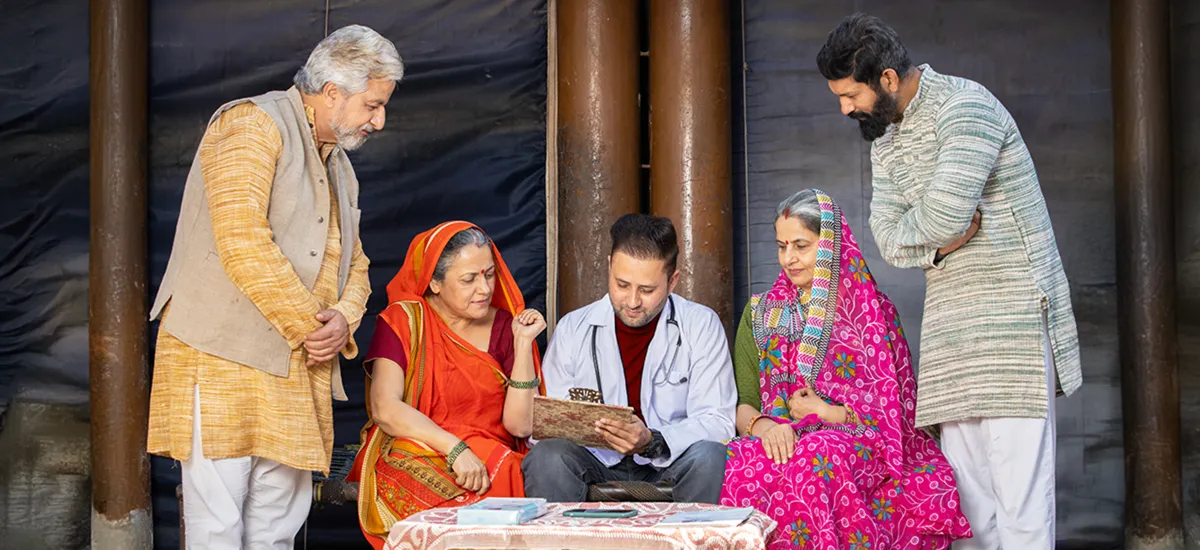The Janani Suraksha Yojana scheme (JSY) is a government health insurance for women designed to improve mothers' and newborns health in India. This initiative was launched under the National Rural Health Mission (NRHM) and is mainly focused on reducing mortality rates in mothers and newborns by promoting institutional delivery among the economically weaker parts of society.
Women covered under this scheme have access to financial assistance and cashless maternity insurance, which ensures safe delivery in recognised health facilities of the government. Understand the qualification criteria, the key features and benefits of the Janani Suraksha Yojana scheme, and how it contributes to mothers' health in India.
What is Janani Suraksha Yojana?
Janani Suraksha Yojana is a maternity insurance scheme that has been launched by the government of India to support pregnant women in low-income families. The scheme encourages the possibility of institutional delivery by providing financial incentives to the expected mothers.
The initiative is particularly targeted against rural and below-poverty-line (BPL) families to ensure that each mother receives the right medical treatment during pregnancy and childbirth.
Eligibility criteria of Janani Suraksha Yojana
Janani Suraksha Yojana eligibility criteria are as follows:
· Age – The female should be 19 years or above at the time of delivery.
· Rural and Urban Beneficiaries – The JSY scheme is available for both rural and urban areas, with different financial assistance.
· Pregnant Women from Low-Income Groups – Women from below the poverty line (BPL) families are eligible.
· First Two Live Births – Benefits are provided for up to two live births only.
· Registered with ANM/ASHA/Health Worker – The beneficiary must be registered with a health worker (ASHA, ANM, or equivalent) to avail of benefits.
· Institutional Delivery – The woman must deliver in a government health facility or an accredited private hospital. Home deliveries are not covered except under certain high-risk conditions.
How to apply for Janani Suraksha Yojana
Applying for the Janani Suraksha Yojana scheme is easy and can be done offline or online.
Offline Registration:
· Go to your nearest health system or Anganwadi Centre, where health workers will help fill out the application form.
· Provide necessary documents such as Aadhaar cards, BPL certificates, and pregnancy certificates.
Online registration:
· Many states give Janani Suraksha Yojana online registration through their official JSY website.
· Go to the State JSY portal and fill in the necessary personal details.
· Upload documents such as an Aadhaar card, BPL card, and medical certificate.
· Submit the application form and after confirmation, you will be informed of the benefits.
· Make sure your bank account information is provided for direct transfer of money. After registration, follow the healthcare provider for help during delivery.
Benefits of Janani Suraksha Yojana
JSY scheme benefits are for both mother and child. Here are the primary Janani Suraksha Yojana benefits:
· Financial assistance
The main advantage is the financial assistance given to the mother. In rural areas, women can get up to ₹1,400, and in urban areas, the amount is slightly lower. This financial assistance helps to cover institutional delivery and transport expenses.
· Better access to the health care system
Financial assistance encourages institutional delivery, which in turn reduces the risk of complications during delivery. It is more likely that pregnant women will receive effective medical treatment in hospitals, which increases the chances of safe births.
· Reduction in maternal mortality
By encouraging institutional delivery, JSY has helped to reduce the mortality rate of mothers and newborns, as women are more likely to receive timely care during pregnancy and childbirth.
· Cashless Health Insurance
JSY works as a cashless health insurance, where qualified women can benefit from maternity care services without worrying about prepayment, as the government directly refunds expenses.
· Postpartum Care
In addition to distribution-related expenses, the plan covers postpartum care and ensures that the mother receives sufficient care after delivery to prevent health complications.
· Government Health Insurance Scheme
Janani Suraksha Yojana acts as health insurance for women, covering the necessary delivery-related expenses in both private and public healthcare centres.
Final thoughts
Janani Suraksha Yojana is an important government health insurance scheme that ensures safe maternity and child health by providing cash assistance, free maternity care, and institutional delivery help. By reducing the economic burden for the expected mothers, JSY has played an important role in promoting secure delivery practices throughout India.
If you or someone you know is eligible for the Janani Suraksha Yojana scheme, take advantage of the benefits by registering online or visiting the nearest healthcare centre. For added maternity coverage, explore Generali Central Insurance plans, offering comprehensive maternity insurance with cashless hospitalisation benefits. Secure your health and your baby’s future with the right coverage today!
Frequently asked questions (FAQs)
1. Who can apply for the Janani Suraksha Yojana Scheme?
Pregnant women in BPL families can search in rural and urban areas, provided this is their first or second living birth.
2. How much financial assistance is given under JSY?
Women in rural areas receive ₹1400, while in urban areas they receive ₹1000 for institutional delivery.
3. Is cashless maternity insurance available under JSY?
Yes, Janani Suraksha Yojana should be admitted to cashless hospitals in health services approved by the government.
4. Can I register online for the Janani Suraksha Yojana Scheme?
While Janani Suraksha Yojana Scheme online registration is available in some states, it is mainly treated through state health stations and Anganwadi workers.
5. Is there a deadline to apply for JSY?
It is appropriate to register in the early stages of pregnancy to use full advantage, but there is no fixed time frame.

























